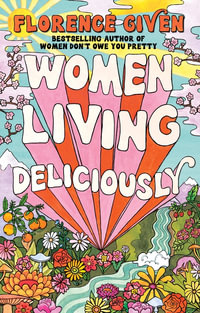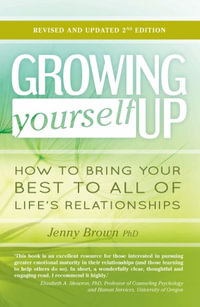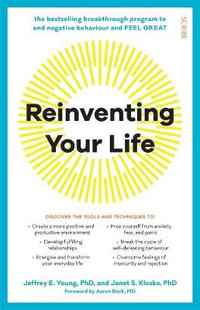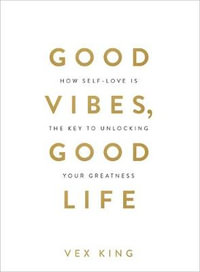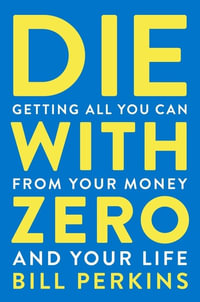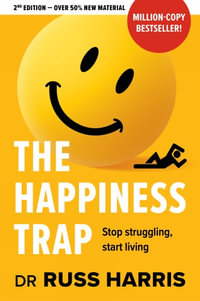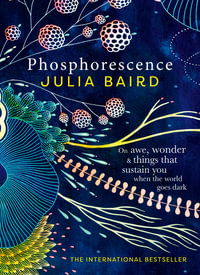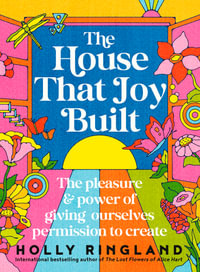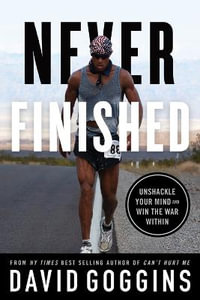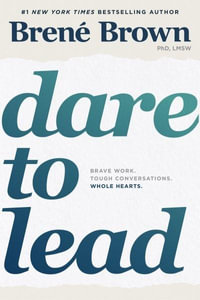
Four Acts of Personal Power
How to Heal Your Past and Create a Positive Future
By: Denise Linn
Paperback | 1 December 2006 | Edition Number 1
At a Glance
224 Pages
20.32 x 13.34 x 1.91
Paperback
$42.25
or 4 interest-free payments of $10.56 with
orAims to ship in 10 to 15 business days
About the Author
Denise Linn is an international healer, writer, and lecturer. She has taught seminars in 19 countries and has written 12 books, including the bestselling book Sacred Space and the award-winning book Sacred Legacies. She has also appeared on the Oprah Winfrey Show and in numerous documentaries, as well as on TV programs on the Discovery and Lifetime Networks and BBC television. Denise lives in the central California wine region, where she and her husband, David, are planning a small vineyard and winery (“Sacred Oak”) dedicated to producing sacred wine. Using organic farming, sustainable agriculture, landscape feng shui, and by connecting with the spirit of the land, the wine they will produce is intended for sacred purposes. Denise is also creating a woman’s Mystery School.
The Power of Generations
[indent left and right]
Suddenly, like rapid fire, salmon were shooting through the rapids in a panic. This meant that something or someone was coming. Red Bird crouched silently in the tall grasses. His bow was strung and ready. He listened intently, hearing a soft, rhythmic splash, splash, splash coming upstream. Emerging from the bend, a huge battle-scarred bear came into view. Red Bird slowed his breath and waited. Unprovoked, this old bear had recently come into Red Bird's village and attacked a man. Winter was coming, and the village wouldn't be safe while the bear lived. Armed with only a meager bow and his courage, Red Bird waited. He felt his muscles knot in the cold morning air. He willed their release as he watched the bear approach.
He waited until the bear was broadside, swiftly pulled his bow into a full draw, aimed, and shot. The soft thump of the sound of the bow didn't alarm the bear. If the arrow had penetrated, the bear didn't respond. Then, as if his senses had been aroused, the bear lifted his massive head and looked straight at Red Bird. Slowly and deliberately, he approached the warrior. Red Bird, just as deliberately, drew his bow again. Knowing that his destiny lay in his next shot, he carefully took aim, looked into the black eyes of the bear ... and waited. "One more step," he said to himself. "One more step and I'll shoot." Suddenly, without warning, the old bear crumpled over. The first arrow had found its mark.
[end indent]
This story about a Native American hunter illustrates that the roots of his courage and his prowess as a hunter reached far back into the past, to a time long before he'd taken his first breath. His father was a hunter, as his grandfather and great-grandfather had been. As a young boy, Red Bird had learned methods to track and kill prey that were the same techniques his father had learned from his father, who had in turn learned them from his father, and so on. The vitally important function of providing food for his family and village was linked to the role of men in his culture for generations.
When people lived in small communities and villages, they often felt a sense of connection to the past that ennobled their acts and instilled in them a sense of appreciation for those who'd passed on the traditions. One man was not just a hunter out on his own, at the mercy of the elements and fate. He was one of a long line of hunters, facing the same difficulties and experiencing the same triumphs as his ancestors. This lineage lent a sense of the sacred to everyday acts and provided a context for interpreting individual experiences. There was incredible strength to be derived from living in a world where one didn't feel alone. There was power in knowing that, in addition to being part of a family and a village, one was also an important link in a long, strong, and unbroken chain extending backward and forward in time. Questions such as "What is the meaning of it all?" and "Does my life make any kind of difference to anyone?" were very unlikely to arise. It was obvious to each individual what role he played in his culture. It was just as obvious how difficult it would be for the village if someone was suddenly unable to fulfill his or her function anymore. Everyone depended on everyone else, particularly on the wisdom of the elders, because they were the ones who'd lived long enough and had seen enough to be prepared for just about anything.
Carl Jung once wrote: "A human being would certainly not grow to be seventy or eighty years old if this longevity had no meaning for the human species.... The afternoon of human life must have a significance of its own and cannot be merely a pitiful appendage to life's morning." After one has created a career, perhaps raised a family, and paid dues to society, there must be some purpose to the second half of life. The elders of ancient cultures were the peace keepers. Males from their late teens into adulthood often displayed aggressive behavior, but it was the older men, the elders, who abjured aggression, avoided provocations, and encouraged peace. They countered the brash tendencies of the young with balance and reason. We have lost this healthy balance
In addition, in ancient cultures the elders were the guardians of sacred wisdom and inner mysteries. Traditionally, once an individual had completed the childbearing and physically productive years, he or she could then turn his or her energies inward to the spiritual realm. For this reason the spiritual heritage and the legacy of the tribe were laid on the shoulders of the elders for preservation for subsequent generations. The function of the elders as the Keepers of the Memory of the tribe was essential to the survival of the entire society. Without memories, a race has no future. For example, the elders may have lived through a great drought that occurred 50 years before, and they knew what had to be done in order to survive such a disaster. The lives of the entire community depended upon the skill, wisdom, and knowledge of these elders. A present-day example of this generational wisdom occurred during the December 2004 tsunami that hit Thailand and the surrounding areas. A community of people called the Morgan Sea Gypsies, who lived in isolation for decades on an island off the coast of Thailand, emerged from the tsunami almost unscathed because tribal wisdom had been passed down about what to do when the "wave that eats people" arrived. An entire community was saved because of what the elders remembered that had been passed down to them.
Recently I talked to my friend Nundjan Djiridjakin (Ken Colbung) about the place of elders in his culture. Nundjan is the senior male clan leader of the Australian Bibulmun Aboriginal tribe and is actively involved with efforts to preserve and renew Aboriginal cultural practices among the young. He radiates warmth, strength, and openness, combined with a genuine concern for his people. He said:
[extract: indent left and right and one point smaller]
In our tradition, the elders were honored because they were the ones who had the knowledge. Long ago there was no written knowledge. We passed on our laws and our knowledge through the oral tradition. And the old people were the keepers of this. They were the ones who had lived longer and experienced more things. They knew what to do if a big storm came or something like that. They were the ones who had the answers. See, it might have been a hundred years since such a big storm or drought had come. And these were the people who had the knowledge in that area. No one else had it. You couldn't just get the information out of a book; you had to get it from one of the old ones. So that's where the respect came in.
[end extract]
In today's world, many people feel a lack of connection and meaning in life and subconsciously yearn for the sense of belonging that was an integral part of their ancestors' communities. For some, this need to belong to a group is simply not possible within the context of their own fragmented families. This fact probably accounts for the popularity of cult-type religions and groups that often have strict and limiting rules governing the behavior of their adherents. One may wonder why anyone would want to belong to such a group, given the considerable curtailment of personal freedom, but it seems likely that members are not so much attracted to the rigid routines and constraints as they are to the sense of connectedness they get by being associated with such a strong community. Some of us would never go so far as to join a cult, but we nonetheless continue searching for something that can provide us with that sense of belonging to an ideal that's larger than ourselves. We yearn for something we can believe in and to which we can give our hearts. In addition, we search for mentors, people who've walked before us and who can share their wisdom with us. We yearn for elders. It's as though, on some deep, subconscious level, we need to re-create the experience of belonging to a tribe.
These longings are completely understandable and natural. They are part of our human heritage. Unfortunately, the Industrial Revolution and the incredibly fast pace of change, which is an integral fact of modern life, ruptured the sense of continuity, which is our birthright as homo sapiens. When we look at our grandparents and other old people in the society, we too frequently find that they're not noble individuals who have survived the ravages of time and fate and who hold their wisdom like a precious jewel inside themselves. For the most part, our seniors are discouraged people, not unlike us-individuals who may have become even less wise and powerful at the end of their lives due to the feeling that they're useless and not respected. We may long to be able to turn to the elders and have them help us find our way. However, the reality of the situation is that in our culture, this role has been obliterated over the last century, and as a result, our elderly are no wiser than we are. Perhaps your Great-Aunt May spends every day watching soap operas, and instead of being a revered elder, she has less understanding than you do. This is a tragedy. This problem, which may seem to be only a small part of the many things obviously out of balance with our world, is in actuality quite significant.
The connection with our past, with our ancestors, and with the elders who may still be alive in our families could provide us with a sense of real continuity, which could sustain us in our times of doubt and difficulty. However, this link has been shattered by the massive changes occurring in our world. There is a rift, a gaping gash, in the line connecting our past to our future, and we're left lost and longing for something we have no conscious memory of losing. I believe that reestablishing the sense of connection to our ancestors is a heroic task confronting us at this point in time. It's an undertaking that has been presented to our generation to fulfill. At stake lies not only our personal and familial healing, but also the healing of our planet.
The importance of this task is enormous. However, we don't need to feel overwhelmed. We may not be able to immediately transform the elders we know into wise ones who can help us find our way; nonetheless, there are transformative steps that we can take in this direction. There are actions that we can take now that will have an influential effect not only on our own lives, but also on the lives of those who will follow us. * * *
The simplest and most logical place to start is with yourself. Why? Because you have the most power over yourself. Until you learn to fully utilize that power, you won't be ready to move out into the world with it. Look at your life and where it's heading, and imagine yourself in old age. What choices are you making now that will increase your wisdom and power? Is your life of benefit to those who will follow you? What kind of elder will you be? How can you help contribute to a sense of connection with your fellow human beings? The fact of the matter is that you're already an elder in many ways, an evolving elder. There are areas in your life where you've learned valuable lessons that have helped you to survive. Take a look at these. Observe them and then honor the significance they've had in making your own life and the lives of those around you better. No one becomes an elder all at once. Each choice you make, each small victory that you achieve in the ongoing process of living, increases your personal store of wisdom and makes you a more valuable member of your community. What made the elders crucial to our ancestral communities was the vast store of wisdom that they'd amassed during their long lives. You're in the process of building that storehouse of knowledge and experience right now. It's a highly significant responsibility.
When you live your life with care and a sense of connection to others, you'll find that others will turn to you for help and your opinion. This is a sign that you're beginning to function as an elder in the circle of your family, your school, church, or whatever you define as your community. We belong to many different circles, some of which overlap. Pay attention to your place in each of these-as well as being aware of the larger pattern of your whole life-and what role you can play as an elder. By choosing to become a wise elder, you're actually repairing and reestablishing the continuity of descendance, and this begins to restore the path that has been passed down to you from your ancestors. Becoming an elder is a hallowed task that can lend meaning to all aspects of life, from celebrations and victories to times of difficulty and defeat. Asking yourself questions such as "What can I learn from this that could be of value to someone else?" or "How can I explain how I got through this difficult time in a way that is helpful to my grandchildren?" can provide you with a unique and invaluable tool for sorting through your experiences. It can make your everyday actions, even the most mundane ones, significant and sacred.
Once you've made the commitment to become a wise elder, you can begin to honor and cultivate this spark in everyone around you, especially the old ones. All human beings have the potential to be their best self. All of us have the seeds of grace, compassion, wisdom, and love within us. Whatever we expect to occur in life tends to become what we encounter. So when you choose to notice and respond to the nobility in those around you, there's a much greater likelihood that that's what you'll find in them. Maybe your grandfather is short-tempered and is basically a self-centered man. By believing that he's also capable of so much more-and by knowing that there have been wonderful moments in his life where he exemplified kindness and mercy-you're helping him become the wise elder that you need him to be. This also helps instill within the vast ocean of collective consciousness the idea of valuing our old ones for their wisdom. And so it will come to be. Small individual acts have a way of gaining momentum until they're mighty, unstoppable movements.
This book contains many different perspectives for approaching the challenge of the coming years. I believe that looking at the long view of our history, extending all the way back into the prehistoric times of our ancestors as well as flowing far into the future, gives us a unique perspective on our lives. This overview of life is a way of perceiving reality that gives us hope and a sense of deep meaning. When you know that you're a vital link connecting your ancestors to your children, or those who follow after you, then death isn't a meaningless tragedy; you know that your spirit lives on. When you die, the legacy that you've passed on to your descendants continues to make an essential contribution to their lives. There's the awareness that you are an essential, incredibly valuable part of something bigger than yourself. You know that the actions that you take have far-reaching impact because you're connected to everyone around you, those who came before you and those who are not yet born. You experience yourself as a member of the human tribe. Not everything about our individual and collective past is rose-colored and nostalgic. It doesn't have to be. Our task is not to deny the negative parts of our past. Part of our destiny is to sort through those behaviors and qualities that have worked well, in addition to those that have hurt us and kept us from reaching our full potential. That is the meaning of evolution; that is part of the heritage that has been handed down to us. That is what our ancestors have been doing since they first became human.
Confronted with the enormous challenges facing our world, it's easy to become overwhelmed, afraid, and filled with despair. However, as we begin to repair the rift separating us from our past, we can also come to realize that all we have to do is take our own small steps in the right direction. That's all our ancestors did. They didn't achieve everything all at once; they took small, individual actions, which collectively made a contribution to the future. In our time on Earth, we need only do our part and pass on the torch of our best efforts and our highest hopes to the next generation. They'll carry it forward into the land where our dreams are realized. That is the power of generations.
(Continues...)
Excerpted from FOUR ACTS OF PERSONAL POWER by Denise Linn Copyright © 2007 by Denise Linn. Excerpted by permission.
All rights reserved. No part of this excerpt may be reproduced or reprinted without permission in writing from the publisher. Excerpts are provided by Dial-A-Book Inc. solely for the personal use of visitors to this web site.
ISBN: 9781401907457
ISBN-10: 1401907458
Published: 1st December 2006
Format: Paperback
Language: English
Number of Pages: 224
Audience: General Adult
Publisher: Hay House
Country of Publication: US
Edition Number: 1
Dimensions (cm): 20.32 x 13.34 x 1.91
Weight (kg): 0.32
Shipping
| Standard Shipping | Express Shipping | |
|---|---|---|
| Metro postcodes: | $9.99 | $14.95 |
| Regional postcodes: | $9.99 | $14.95 |
| Rural postcodes: | $9.99 | $14.95 |
How to return your order
At Booktopia, we offer hassle-free returns in accordance with our returns policy. If you wish to return an item, please get in touch with Booktopia Customer Care.
Additional postage charges may be applicable.
Defective items
If there is a problem with any of the items received for your order then the Booktopia Customer Care team is ready to assist you.
For more info please visit our Help Centre.
You Can Find This Book In

Military Mindset: Lessons from the Battlefield
THE EXPLOSIVE NEW BOOK FROM BESTSELLING AUTHOR ANT MIDDLETON
Paperback
RRP $34.99
$23.95
OFF
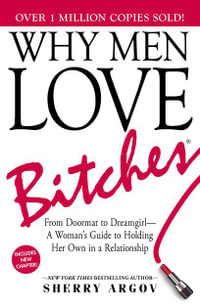
Why Men Love Bitches
From Doormat to Dreamgirl – A Woman's Guide to Holding Her Own in a Relationship
Paperback
RRP $27.99
$26.50
This product is categorised by
- Non-FictionMind, Body, SpiritHay HouseSelf Improvement Books from Hay House PublishingEmpowerment Books from Hay House Publishing
- Non-FictionSelf-Help, Personal Development & Practical AdvicePopular PsychologyAssertiveness, Motivation & Self-Esteem & Positive Mental Attitude
- Non-FictionPsychologySocial Psychology
- Non-FictionMind, Body, SpiritThought and Practice
- Non-FictionMind, Body, SpiritPsychic Powers & Psychic PhenomenaThe Afterlife, Reincarnation & Past Lives

